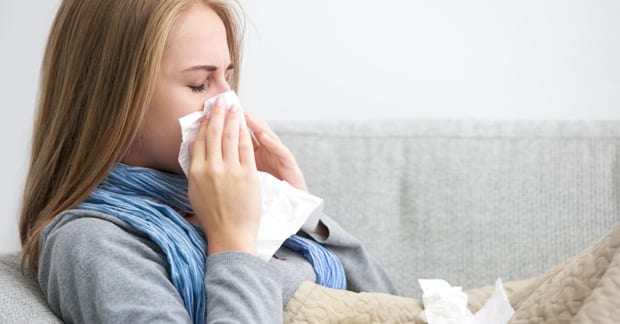Continuing this topic from last month, we are discussing various vitamin, nutriceutical, and dietary approaches that show promise with some published evidence to benefit those of us struggling with allergies.
The next herb to consider is: 6) Tinospora cordifolia as this can reduce allergy symptoms such as sneezing, itching, and nasal discharge. 7) Combination allergy supplements include a number of natural allergy remedies that contain a blend of botanicals, of which one containing a combination of European elderflower, sorrel, cowslip, verbena, and gentian root help those with chronic sinusitis from allergies and also for those with bronchitis and acute sinusitis. 8) Other allergy supplements: While there are MANY supplements commonly used to treat allergies, there is less evidence to support their use in allergy management. The list includes Echinacea, grape seed extract, pycnogenol (pine bark extract), vitamin C, EPA, honey, cat’s claw, albizzia (Albizzia lebbeck), baical skullcap (Scutellaria baicalensis), goldenseal, and spirulina.
In addition to the precautions discussed at the conclusion of last month’s article (pregnancy, breastfeeding, under 18 years old), keep in mind that long-term use of both supplements and drugs can increase the potential for developing a tolerance or even cause toxicity and harm. If you develop an allergic reaction, that is a clear indication to STOP taking the allergy supplement. Sometimes removing ALL the suspected supplements may be needed to properly identify a toxicity that has developed. TALK TO YOUR DOCTOR OF CHIROPRACTIC (as well as your primary care physician and pharmacist) about any unusual symptom or signs that you may have developed! Also, remember to PLAN AHEAD, as most of us do not think about our allergy symptoms until they begin, and once an allergy symptom starts, it’s VERY HARD TO STOP (with medications as well as supplements). Try using these approaches four to six weeks BEFORE the allergy season comes or at least a few weeks before visiting your relative with six cats! And, during the ragweed season or when you’re at the six-cat aunt’s house, take these FIRST THING IN THE MORNING so the histamine reaction DOESN’T start – it’s MUCH more effective!
Remember, we are all different, and combinations of these things may be needed to get the best result. WRITE down the different combinations you try and your response (positive and negative) for future reference, knowing that while the same response may not be exactly the same every time, at least you’ll know what usually works for you! When adding supplements like quecetin or butterbur, you may have to lower your prescription or OTC drug dose (work with the physician who prescribed the medication and your pharmacist).
Other allergy approaches that have been found helpful include: 1) Reduce the allergens in your home (especially the bedroom). 2) Nasal irrigation using luke-warm distilled water (do not use water straight from the tap), non-iodized salt, baking soda, and for some, a few drops of eucalyptus one to three times a day REALLY HELPS. 3) Use HEPA filters in your AC units and vacuum cleaners. Wear masks when working outdoors. 4) Acupuncture is showing promise as well! Your chiropractor can guide you in this process of allergy management!



